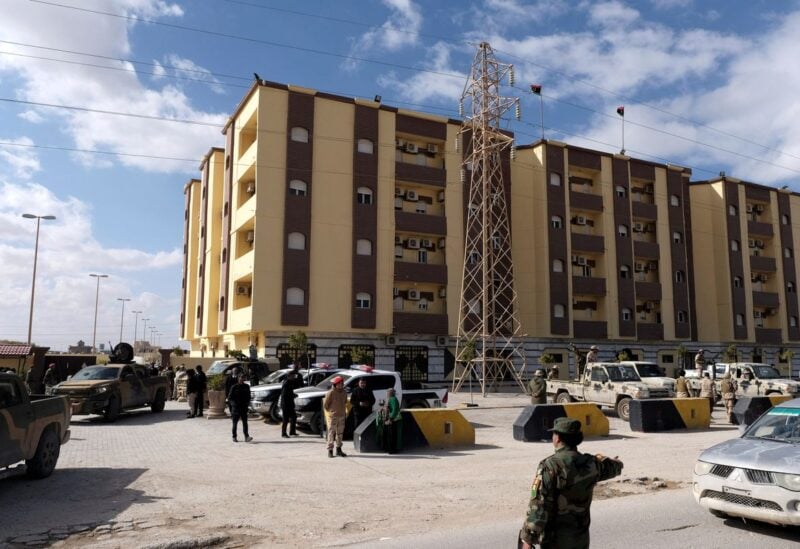
Security forces stand guard outside the Parliament building, in Tobruk, Libya, February 10, 2022 REUTERS/Esam Omran Al-Fetori
Despite the incumbent administration’s refusal to step down, Libya’s parliament is poised to vote on Wednesday to approve a budget for the government it established in March, a move that might hasten the return to parallel rule.
On Tuesday, the parliament in the central coastal city of Sirte began debating the proposed budget plan for Fathi Bashagha’s administration, which has been unable to enter Tripoli and assume charge there.
The dispute over control of government and state revenue, and over a political solution to resolve 11 years of violent chaos, threatens to launch Libya back into administrative division and war.
In Tripoli, Abdulhamid al-Dbeibah, who was installed last year through a U.N.-backed process to head an interim unity government, has rejected the parliament’s appointment of Bashagha and says he will only quit after an election.
The Central Bank of Libya (CBL), which is based in Tripoli and is the only internationally recognised depository for the country’s oil revenue, finances Dbeibah’s government.
Under previous agreements, however, it pays salaries across Libya’s political divide including to fighters on different sides of the conflict.
From 2014 to 2020, Libya was divided between warring eastern and western factions with a parallel government set up in the east with its own state institutions including a central bank.
The effort to reunify Libya’s banking system is seen as crucial to resolving underlying economic drivers of conflict and has been a major thrust of international diplomacy, but has moved slowly.
The parliament, which appointed Bashagha prime minister, is based in the east and largely supported commander Khalifa Haftar’s war against Tripoli and western factions.
If the CBL in Tripoli refuses to finance Bashagha’s budget after the parliament approves it, the parliament may ask the head of the eastern CBL branch to provide the funding. That would effectively end the CBL reunification process.
Meanwhile, eastern factions demanding that Dbeibah step aside have instigated a blockade of most Libyan oil output, with production falling to 100,000-150,000 barrels per day, according to the oil ministry.